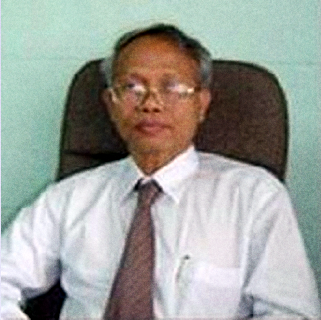Fifteen years ago, Thai human rights lawyer Somchai Neelapaijit disappeared and he is currently still missing. Until now, no perpetrators have been held accountable for his disappearance. Somchai disappeared on 12 March 2004, one day after he had publicly accused the police of torturing his clients, who were in detention in the South of Thailand. Since then, nothing has been heard of him.
Shortly after the disappearance of Somchai, five police officers were arrested and prosecuted for their alleged involvement in the disappearance. Under international human rights law, enforced disappearance is considered to be a continuing crime until the fate and whereabouts of a disappeared person are disclosed or otherwise become known. Currently, Thailand’s penal code does not recognize enforced disappearance as a criminal offense: therefore, prosecutors only filed charges of robbery and coercion against these suspects. Although there were severe suspicions against all five suspects, the court convicted one officer to a three-year prison sentence in January 2006, but acquitted the other four. In March 2011, all police officers were acquitted by the Appeals Court.
Acquittal
On December 29, 2015, the Supreme Court also acquitted the five police officers because there was a lack of evidence. The court also ruled that Somchai’s family could not act as a co-plaintiff because there was no concrete evidence that Somchai was dead or otherwise incapable of bringing the case himself. On 5 October 2016, the Department of Special Investigation (DSI) closed the investigation into Somchai’s disappearance on the grounds that no perpetrators and no new evidence had been found. On 3 November 2016, Angkhana Neelapaijit, Somchai’s wife, submitted a letter to the DSI to object against the decision to stop the investigation of the case.
Universal Periodic Review
In September 2015, Lawyers for Lawyers submitted a report for the Universal Periodic Review of Thailand to the UN Human Rights Council, which took place in May 2016. In February 2017, Lawyers for Lawyers submitted another report for the ICCPR Review of Thailand to the UN Human Rights Committee. In both reports, Lawyers for Lawyers highlighted the failure of Thailand to guarantee effective access to legal services provided by an independent legal profession as set out in the UN Basic Principles on the Role of Lawyers. Lawyers working on high-profile cases are often harassed or intimidated. When lawyers are the subject of crimes, harassment or other violations, the Thai authorities should make sure that these violations are effectively investigated. However, the case of Somchai Neelapaijit demonstrates that the Thai authorities have failed to address the impunity of crimes that human rights lawyers are subjected to.
In its concluding observations of 25 April 2017, the UN Human Rights Committee explicitly stated that it is particularly concerned about reports of torture and other ill-treatment, extrajudicial executions and enforced disappearances against human rights defenders, including the enforced disappearance of Somchai Neelapaijit. Among others, the Committee called upon the Thai authorities for impartial and thorough investigations into these cases.




